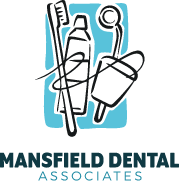Snoring can be embarrassing, and it can make a night’s rest hard to come by for anyone you share a bed with. If you snore, you should know that it can be more than just an inconvenience. It can also be a symptom of sleep apnea, a breathing issue that can seriously complicate your health. You may not equate snoring and breathing issues with your oral health, but you should talk about your snoring during a routine dental visit. If your dentist is aware of the issue, they can work with you to address it, and remedy this awkward – and potentially serious – condition.
What Separates Snoring From Sleep Apnea?
Snoring occurs when soft tissue in your throat partially blocks your air passages. Sleep apnea is a condition where the airways are blocked for long enough that your body must awaken in order to clear the blockage. A person suffering from sleep apnea is often deprived of oxygen for periods of up to ten seconds. Because sleep apnea forces your body to awaken throughout the night, your sleep cycle is interrupted.
Risks Associated With Sleep Apnea
Sleep apnea disrupts your ability to fully rest at night. This lack of restful sleep can leave you groggy, forgetful, and irritable during the day. You also face increased health risks associated with sleep deprivation. People who suffer from sleep apnea face an increased risk for hypertension, heart problems, and depression.
How Your Dentist Can Help
Your dentist can help address sleep problems like snoring and sleep apnea. A custom-fitted insert can be provided, which will help keep your airways unrestricted while you sleep. By preventing these blockages, you should be able to enjoy a night’s rest without these complications.





Recent Comments